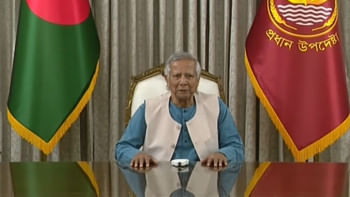Rediscovering Origin

Where did we come from?
Where are we going?
These two questions happen to be at the heart of human knowledge and rationality, and the focal point of Dan Brown's ground-breaking Origin. This book, the fifth instalment of the Robert Langdon series, has been leading bestsellers lists all over the world since its widely publicised release in October this year.
In this near-future sci-fi thriller, the beloved Harvard professor of Symbology and Religious Iconography returns with his quintessential plot elements—a beauty with brain i.e. Ambra Vidal, murder of an extremely prominent and charismatic person in this case, Edmond Kirsch, a "treasure hunt" consisting of rare books, paintings, and churches in a culturally-historically-politically significant country i.e. Spain; and a winsome sidekick called Winston.
While critics have been admonishing Brown for overused techniques (for instant success) and therefore, lack of originality, Origin grapples successfully with the imagination of the readers. The focus on tech giant Kirsch's Copernican discovery and its subsequent impact on the faithful as well as the faithless of the world is what makes this book so thought-provoking. Unlike the previous four books of this series, Origin does not incorporate any brutal and grotesque torture or murder scene -- definitely good news for the faint of hearts (like yours truly).
The end of the book, sadly though, is a smidge stretched and flat; but the sentimental and almost romantic goodbye scene between Vidal and Langdon makes up for that defect to some extent. This reader, for one, cannot but help wait for more adventures of the beloved, Mickey Mouse watch-wearing professor.
T. S. Marin is obsessed with collecting and reading books. She also teaches English at Primeasia University and is the Sub Editor of Star Literature and the Reviews pages.


 For all latest news, follow The Daily Star's Google News channel.
For all latest news, follow The Daily Star's Google News channel. 



Comments